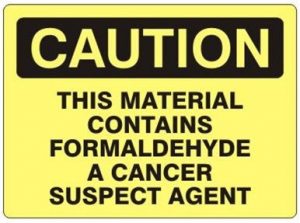French Magazine Claims Electronic Cigarettes Are Not the Harmless Gadgets They Are Marketed As
According to an article in the September issue of French magazine 60 Millions Consommateurs (60 Million Consumers), electronic cigarettes contain significant levels of carcinogenic chemicals and are “far from the harmless gadgets they are presented as by manufacturers”.
 The magazine, which reports the findings of the National Consumers’ Institute (INC), claims researchers from the institute have detected alarmingly high levels of formaldehyde, acrolein and acetaldehyde in several of the ten different rechargeable and disposable e-cigarette models they’ve tested. None of the previously conducted studies reported this kind of results, but Thomas Laurenceau, editor of 60 Millions Consommateurs says that’s only because the INC team used a new method – an installation capable of simulating the operation of an electronic cigarette and of collecting all the emitted compounds – to detect the never-before-found substances. Laurenceau calls on authorities to react on the problem of electronic cigarettes, but adds that these findings are “not a reason to ban them, but a good reason to control them.” France has already decided to ban electronic cigarettes in public places.
The magazine, which reports the findings of the National Consumers’ Institute (INC), claims researchers from the institute have detected alarmingly high levels of formaldehyde, acrolein and acetaldehyde in several of the ten different rechargeable and disposable e-cigarette models they’ve tested. None of the previously conducted studies reported this kind of results, but Thomas Laurenceau, editor of 60 Millions Consommateurs says that’s only because the INC team used a new method – an installation capable of simulating the operation of an electronic cigarette and of collecting all the emitted compounds – to detect the never-before-found substances. Laurenceau calls on authorities to react on the problem of electronic cigarettes, but adds that these findings are “not a reason to ban them, but a good reason to control them.” France has already decided to ban electronic cigarettes in public places.
The study quoted by the French magazine found that in three out of the ten models tested the levels of the chemical compound formaldehyde came close to those in conventional tobacco cigarettes. Formaldehyde is an organic compound classified as carcinogenic by the International Agency for Research on Cancer (IARC). The research also revealed the presence of another very toxic molecule, acrolein. It was detected when testing the popular Joytech E-Roll which apparently heats up too fast causing an unusual reaction with glycerin molecules in the e-liquid and producing acrolein “at levels that sometimes exceed even those measured in some tobacco cigarettes”. Acetaldahyde is a chemical classified as possibly carcinogenic. It was also detected during the INC test in amounts “far from negligible” but that remain lower than those observed in analogs. Researchers also found that some e-cigarette brands contained traces of nickel, chrome and antimony.
Thomas Laurenceau also criticized the lack of safety caps on some of the refills tested, noting that nicotine is particularly toxic for children, and the improper labeling of some of the tested products. Apparently some of the labels read “propylene glycol free” or failed to mention it as an ingredient.
Most of the e-cigarette brands used during this mysterious study from the National Consumers’ Institute are only available on the French market, but these findings could be bad news for everyone in the industry. It’s difficult to say at the moment, considering all we have to go on is a magazine article which doesn’t go into detail about how the study was conducted or who funded it, so we’ll just have to wait for more details.
Sources: L’Internaute, Ouest France















